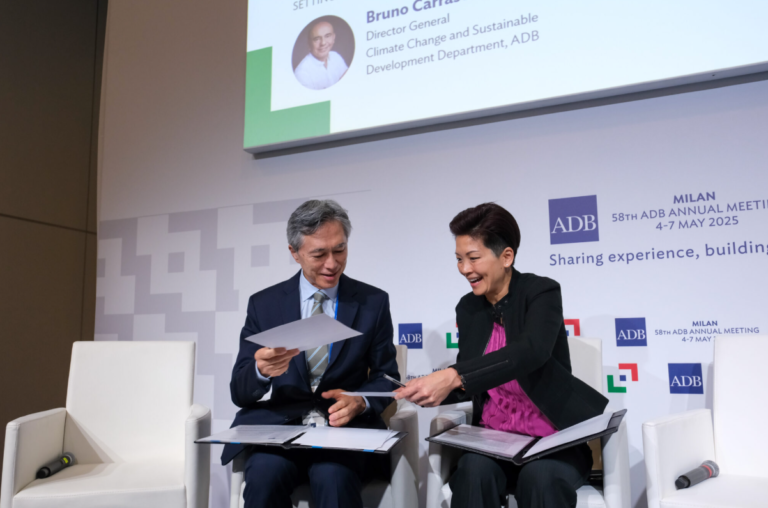The Global Centre for Maritime Decarbonization Partners with Asian Development Bank for Sustainable Finance
The Global Centre for Maritime Decarbonization (GCMD) has signed a contract with the Asian Development Bank (ADB) to accelerate maritime decarbonization efforts through sustainable finance.
According to GCMD, the partnership aims to promote green financing pathways that support a “sustainable and resilient” maritime sector.
The initiative will focus on grounding green financing in verified emissions reduction data to build investor confidence, unlock capital for scalable decarbonization solutions, and expedite the adoption of energy efficiency technologies (EETs) in shipping.
The agreement was formalized during a meeting in Milan, Italy, coinciding with the launch of ADB’s Sustainable and Resilient Maritime Fund (SRMF). The SMRF aims to prepare the shipping industry for the future by concentrating on key areas such as investing in port infrastructure, accelerating alternative energy sources, closing financing gaps, and harmonizing regional policies.
“Through the Sustainable and Resilient Maritime initiative and associated new funding arrangements being developed, we are supporting our client countries to modernize ports, strengthen regional trade connectivity, and de-risk investments that drive greener supply chains,” highlighted Hideaki Iwasaki, Director General, Sectors Department 1, ADB.
While energy efficiency technologies are crucial for reducing harmful emissions and fuel savings, challenges remain in accurately quantifying these savings, leading to uncertainty for industry stakeholders. GCMD is working on methodologies to validate fuel savings through onboard sensors and plans to introduce the Pay-As-You-Save (PAYS) financing model.
“At this critical juncture, the IMO’s announcement of a global emissions pricing mechanism sends the clearest signal yet that urgent action is required—not only to advance decarbonization but also to safeguard the long-term commercial viability of shipowners,” emphasized Lynn Loo, CEO of GCMD.
“Energy efficiency technologies can play a vital role by reducing fuel consumption, thereby lowering the penalties shipowners will face under IMO’s framework. We believe that the Pay-As-You-Save model can uniquely accelerate and scale the adoption of these critical solutions,” added Loo.
All Aboard the Green Loan Liner
Green financing, including green loans, sustainability-linked funds, and green bonds, is becoming increasingly important in the maritime industry’s transition to net zero. As the sector aims to reduce its greenhouse gas emissions, green finance provides essential tools to support decarbonization initiatives.
Regulatory frameworks like the IMO Net-Zero Framework and the EU ETS have influenced these schemes, requiring shipping players to account for and pay for emissions in Europe.
Despite some remaining hurdles, such as the need for standardized criteria for green projects, the momentum towards sustainable shipping, supported by green financing, continues to grow. Poseidon Principles’ December 2024 data shows that the maritime transportation industry is steadily moving towards climate neutrality, with collaboration between financial institutions and shipping clients on the rise.

